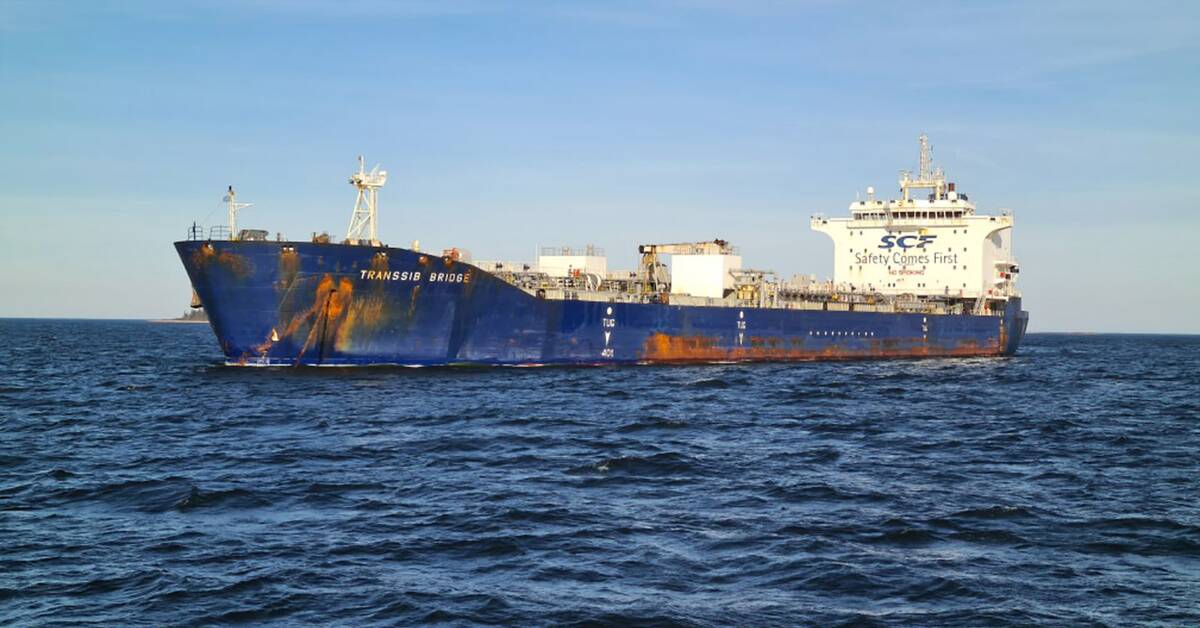Ukraine is appealing to the outside world to stop imports of Russian oil.
The United States has done so and the United Kingdom has taken steps in the same direction.
But the Swedish government does not intend to act alone - but in that case is waiting for other EU countries.
The issue of Russian oil and gas is one of the world's most burning issues right now.
For the Swedish Maritime Administration and the Port of Gävle, the new situation has become relevant in recent days - when the oil tanker Transsib Bridge arrived in Swedish waters.
Required payment in advance
The tanker, with a capacity for almost 50,000 tonnes of oil, left the port west of St. Petersburg on Wednesday and the plan was for it to call at the port of Gävle on Friday morning.
But that did not happen.
Both the Swedish Maritime Administration and the Port of Gävle demanded advance payment for all fees - and the tanker was anchored outside Gävle until Saturday morning when the payment was received.
- We still allow Russian ships as long as they pay in advance.
We continue as usual until the government tells us to do something else, says the Swedish Maritime Administration's communications manager Jonas Franzen.
It is the first time since the Russian invasion of Ukraine that the port of Gävle is faced with a situation with a Russian ship.
According to SVT's information, the tanker is fully loaded with aviation fuel.
- But you have to be careful with who you get paid by and how, says Fredrik Svanbom, CEO of the municipal company Gävle Hamn.
Owned by state-owned Russian shipping giant
The oil tanker goes under the Liberian flag.
But the owner is a shipping company in Dubai, which in turn is part of the Russian state-controlled shipping giant Sovcomflot.
Sovcomflot is on the EU sanctions list, which was decided on February 25, the day after Russia's invasion of Ukraine - and which was described by Prime Minister Magdalena Andersson (S) as the "toughest sanctions package the EU has ever decided".
- We do not have the authority to close the port, that decision is made by the government.
But through our industry organization, we have pointed out to the government that we would like to see them make a decision to refuse Russian ships to call at Swedish ports, says Fredrik Svanbom.
SVT has asked the Swedish Chamber of Commerce - Sweden's authority for foreign trade, the EU's internal market and trade policy - what the sanctions against Sovcomflot mean but has not yet received an answer.

